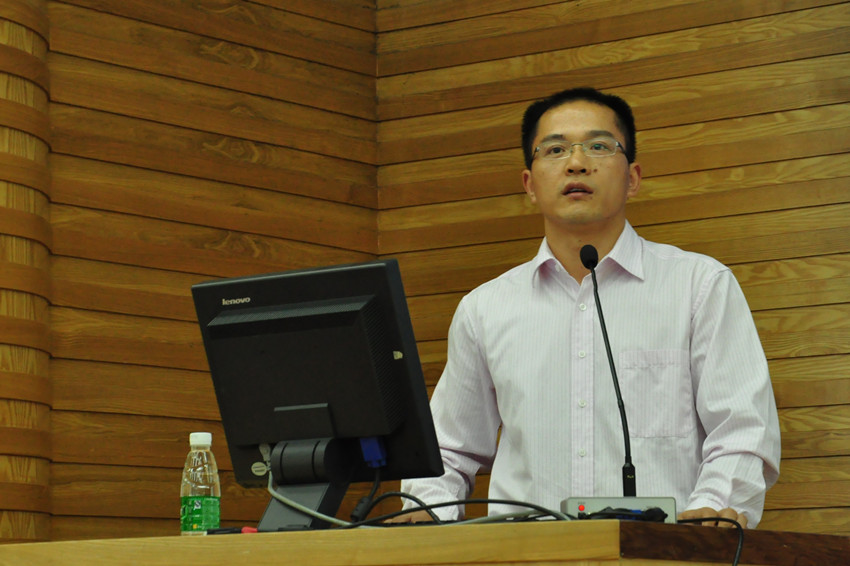Professor Ran Yongping,Pearl River scholarofGuangdong Province universities and colleges, and a full-time researcher at the international Key Research Centre for Linguistics and Applied linguistics of GDUFS, gave a lecture about "the pragmatic perspective of foreign language teaching and research – its phenomena, problems and tendency" at the university conference hall on Oct. 18, 2012.
This lecture is the 25thone of the forum ofGuangdongProvinceuniversities and collegesPearl River Scholar Scheme, addressing the foreign language teachers and researchers inGuangdongProvince. After the introduction of Professor Ran’s research background and achievements by the Vice President of GDUFS and Centre Director Liu Jianda, Professor Ran firstly defined and delimited the scope of the pragmatic perspective in foreign language teaching and research, which includes phenomena of implied information and speaker meaning in interaction, the twists of communication covering misunderstanding, repair, repetition, shift, aversion and omission, doing things with words, the contextual conditions of speech acts covering power, status and positioning of the interlocutors. These provide insights into the interface study between foreign language teaching and pragmatics.
Then he focused on the pragmatic phenomena in foreign language teaching and research, including lexical narrowing and broadening, pragmatic orientation of indexicality, implicature and effects of common ground on the interpreting and producing of utterances. He pointed out that all these kinds of pragmatic information go beyond the decoded information and are bounded by the interpersonal constraints and pragmatic rules including power relationship and social distance. Concurrently, he pointed out the related major problems of foreign language teaching and research, for instance, lack of adequate pragmatic perspective, overweighing the only standard of British and American culture and ignoring the pragmatic multitude, mutual existence and tolerance of ELF (English as a lingua franca), lack of pragmatic intrusion into the compiling of course books, dynamic interaction of classroom activities, and lack of awareness of pragmatic inadequacy of students’ communication in foreign languages.
Finally, Prof. Ran summarized four major trends of related research, namely, emphasizing the direct focus on pragmatic knowledge, features and competence, their teachability and learnability, the broadening scope of pragmatic intrusion and the systematic study of particular pragmatic issues, the pragmatic shift from EFL to ELF, and pragmatic adaptation in practice, including course book compiling, classroom teaching, language testing and teaching evaluation in the new era.
Prof. Ran’s insightful analyses have deeply impressed the attendants. In the final question-answer section, some teachers raised related questions and Prof. Ran offered concise explanation and suggestions for future research. In concluding remarks, the Vice President of GDUFS Prof.Liu Jiandahighly praised Prof. Ran’s instructive lecture and its guiding role in conducting research in foreign language teaching and learning.

